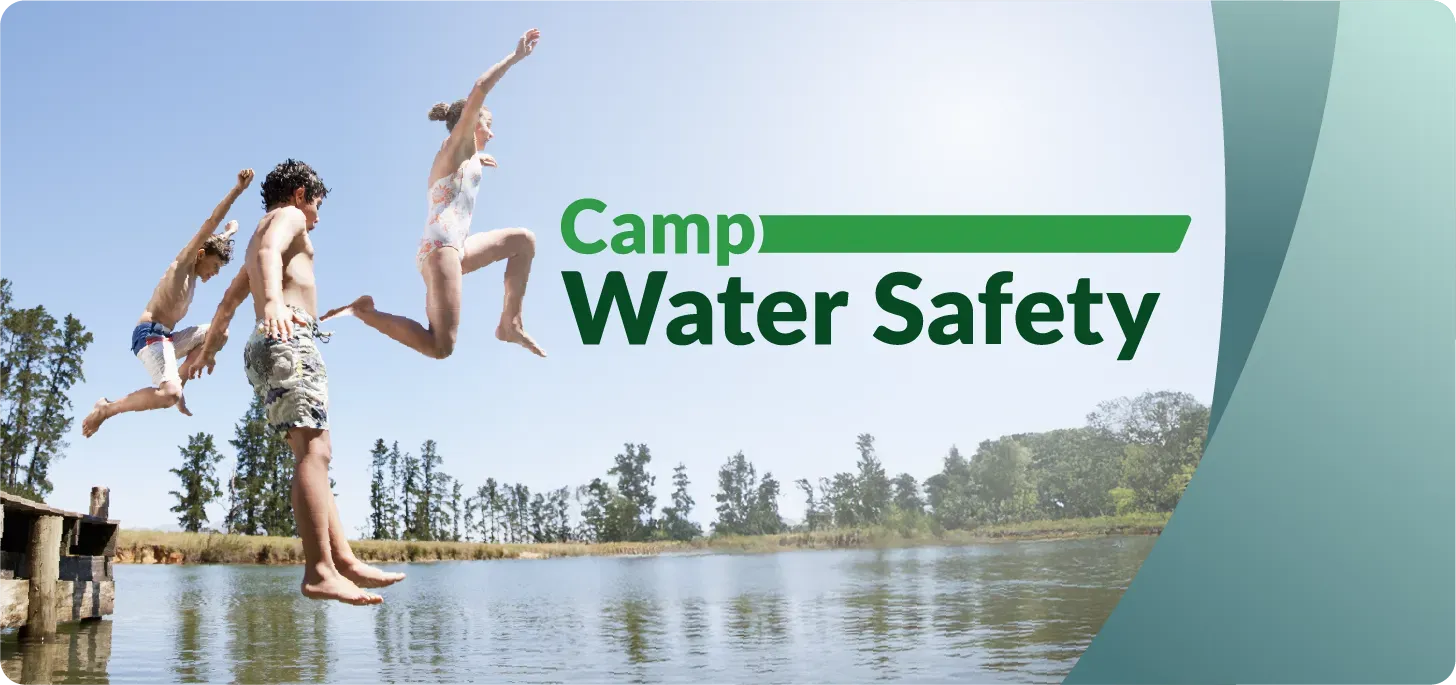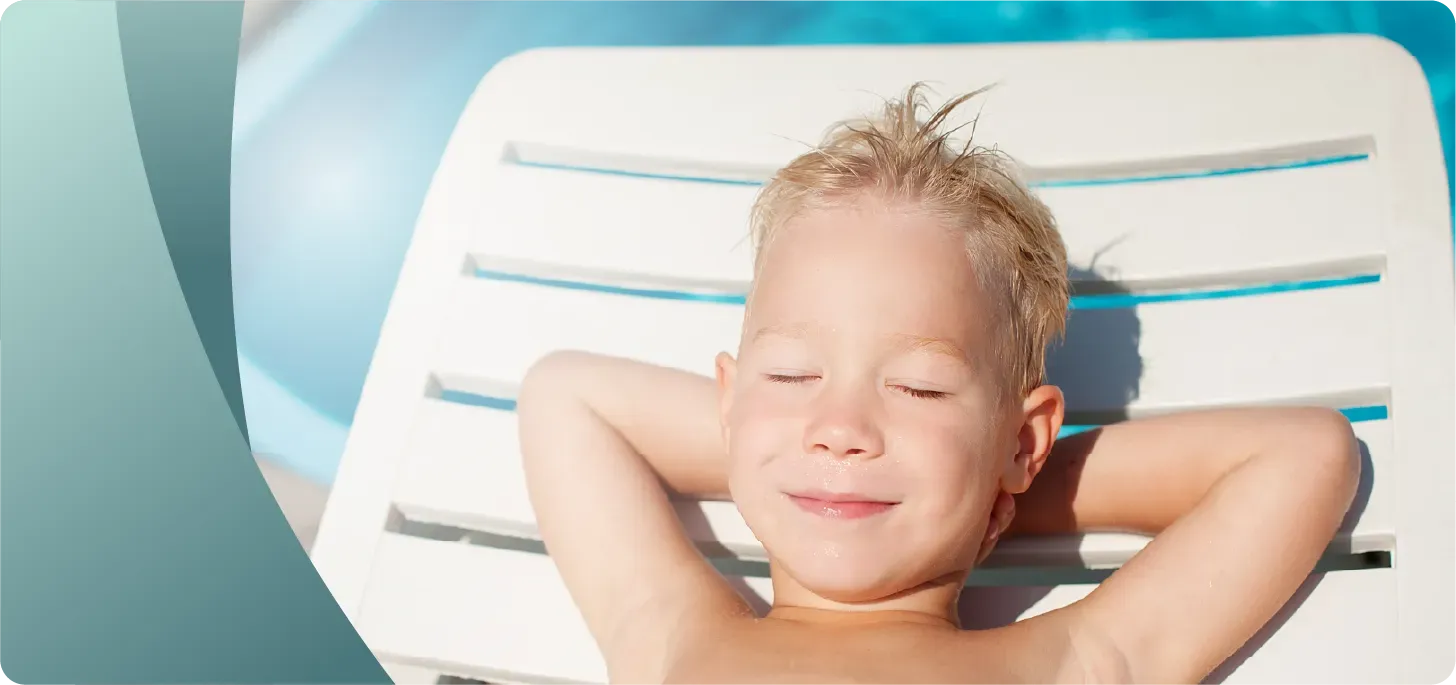Camp Water Safety: 10 Reasons to Host Camp Swimming Lessons
June 25, 2025
As thousands of children dive into their summer camp adventures, one message rises to the surface: Swimming lessons save lives.
For any camp near a pool, lake, or pond—or one that features water activities—water safety at camp isn’t optional; it’s essential. Knowing each camper’s swim ability and ensuring your staff is trained to uphold safety protocols can make all the difference.
Drowning remains the leading cause of accidental death for children ages 1–4, and remains a major threat for older youth, teens, and young adults. Almost half of all drowning deaths occur among people under the age of 29, and a quarter occur among children under the age of 5 years (WLSL,Drowning Statistics).
Did you know that when surveyed, 9 out of 10 Americans agree that youth is the ideal time to develop swim skills (NRPA,Park Pulse Survey)? Youth-oriented summer camps are uniquely positioned to help lead the charge in aquatic safety.
From lakefront adventures and pool games to canoeing and splash zones, even a single swim lesson can change someone’s future.
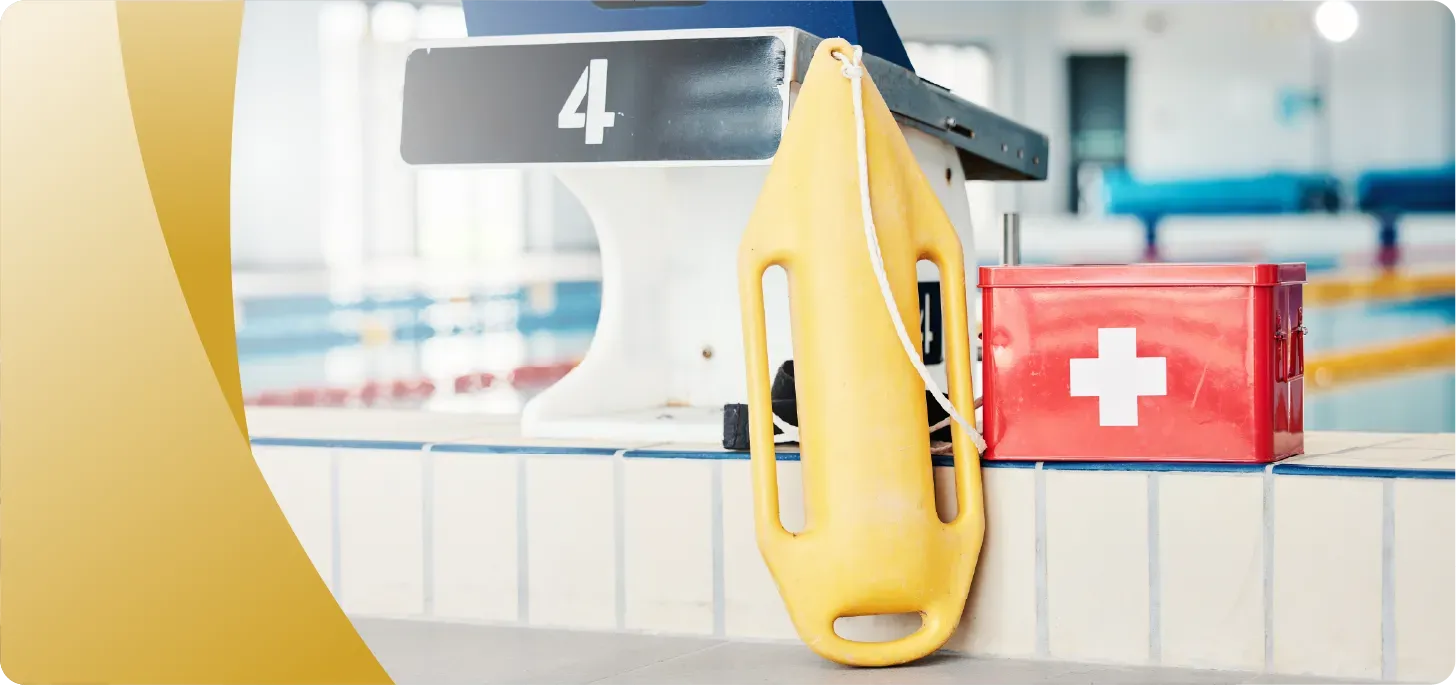
Join the Movement: World's Largest Swimming Lesson 🌍
These facts and figures are a driving force for why camps and communities around the world will unite each year for The World’s Largest Swimming Lesson (WLSL), a global effort dedicated to raising awareness about drowning prevention and the life-saving importance of swim instruction.
Your camp is in a powerful position to help turn the tide this year, and in the future!
📅 Save the date – June 26th!
Even if your camp doesn't run a formal swim school program, you can make a real difference. Here are three simple ideas to get started:
- Host a camp-wide water safety day to discuss trends and offer demonstrations.
- Dedicate time to floating and treading water basics during water activities.
- Talk to campers about the dangers of water and how to stay safe.
If your camp is interested in offering a full learn-to-swim program, but you still have a few people to convince, keep reading. We've got you covered!
Top 10 Reasons to Offer Camp Swimming Lessons
There are several reasons for camps to jump into the learn-to-swim movement. The ones below have made our top ten!
🛟 1. Drowning Prevention & Awareness
Water activities are central to many camp programs, but they also carry risk. Swimming lessons reduce the risk of drowning by up to 88% among children aged 1–4.
Camps that include swim instruction for staff and campers can drastically reduce the chance of accidents.
🏊 2. General Water Confidence & Comfort
Many children arrive at camp with fear or anxiety around water. Lessons build confidence gradually, helping campers feel safe, capable, and ready for water activities.
Simple techniques like
floating, treading water, and buddy rescues
help campers stay calm and capable if they find themselves in trouble.
🛶 3. Important Preparation for Water-Based Camp Activities
Canoeing, paddleboarding, boating, and open swim are just some of the camp activities that require a baseline level of swim ability. Formal instruction prepares campers to safely participate and enjoy all camp has to offer.
Parents may see this program as a signal that your camp takes its responsibility seriously. It can build trust, reputation, and peace of mind, especially for first-time camp families.
Looking for other ways to reduce hesitancy about camp? Take a look at our blog:
Summer Camp Marketing: Turn Uncertainty into Excitement.
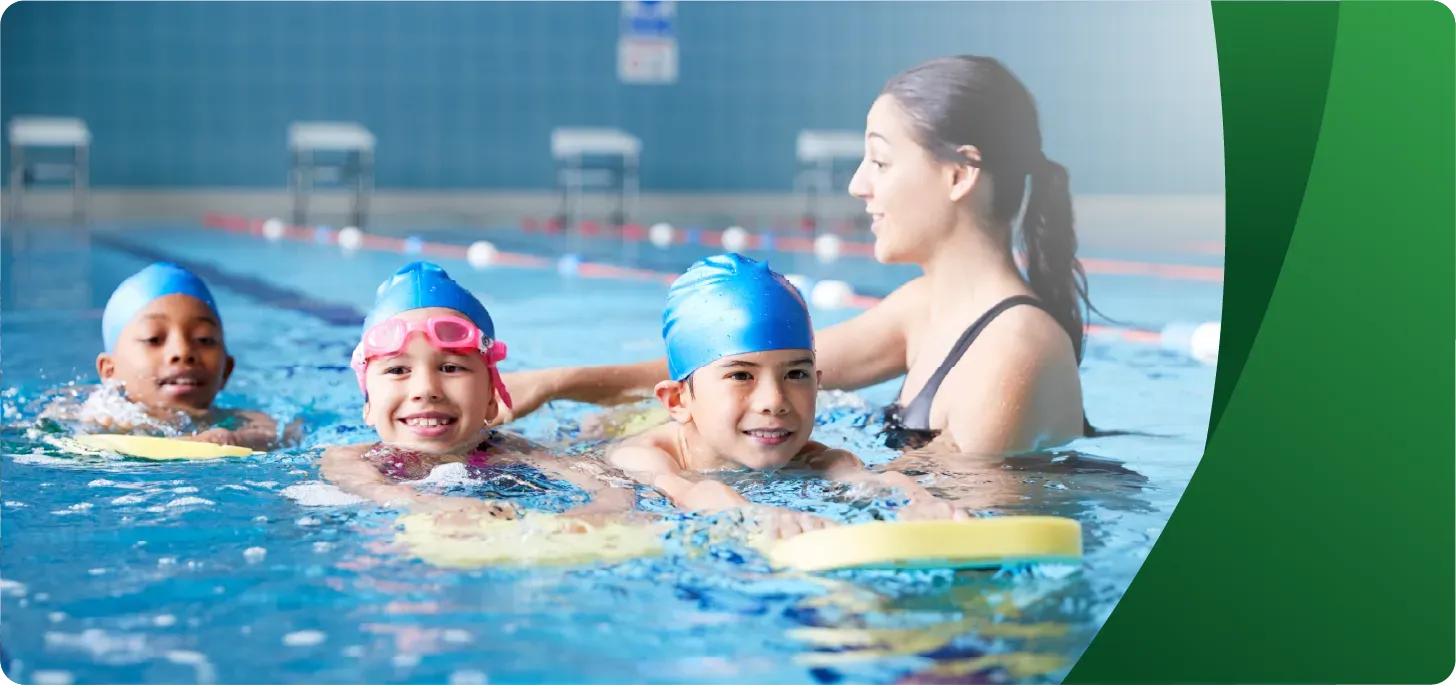
📏 4. Establishing Clear Swim Level Assessment
Swim tests can help
accurately evaluate a camper's swim skills. A 1-on-1 professional assessment can be much more effective than taking a camper, parent or guardian’s word.
This can be particularly important for camps with large water areas that are more difficult to supervise. It enables camps to use systems such as color-coded bracelets to indicate camper skill level, helping water-front staff stay vigilant.
🧠 5. Structured Skill Development & Goal Setting
A well-organized camp swim instruction provides a consistent, progressive framework for learning vital skills—especially for kids who may not have access at home.
Plus, swim lessons can help
teach campers how to set and achieve goals, celebrate progress, and encourage one another.
💪 6. Supporting Physical Health & Coordination Through Swim
Swimming is a full-body athletic activity that supports overall development and health. It builds core strength, tests endurance, and improves both balance and coordination.
Swim is an inclusive activity for all fitness capabilities. For example, due to lessened impact from buoyancy, campers who suffer from joint issues or hypermobility can find water aerobics to be less painful than most land-oriented exercises.
🏕 7. Expanding Swim Instruction to Underserved Youth
Every child deserves the opportunity to live safely. Many families don’t have access to at-home or public pools. Others simply can’t afford private swim lessons or fit them into their busy schedules. Camps can help level this playing field by offering instruction as part of the overall camp experience.
😴 8. Encouraging Campers to Get a Restful Night's Sleep
Anyone who’s spent the day swimming knows the feeling—water activities wear you out in the best way. Campers who swim more, will sleep better. Swimming is a full-body workout that can help campers unwind and sleep more deeply at night.
That’s great news for overnight camps—and even better for your counselors and CITs.
👥 9. Creating More Opportunities for Diversity & New Connections
Water-based programs often have the advantage of taking place in a large communal area. This is an opportunity to bring campers together across cabin or activity groups, allowing campers to meet new peers from a variety of backgrounds.
Swim lessons can be a fresh opportunity to stir up friendships that blossom into lasting connections.
😌 10. Promoting Mental Well-Being & Belonging
Group swim lessons can foster peer encouragement through shared challenges and a supportive learning environment, helping to build a sense of belonging.
Shy, quiet campers may also find that swimming offers a calming, sensory-rich experience that reduces anxiety and helps regulate their emotions.
Make a Splash: Swim Instruction to Set Your Camp Apart
When you teach campers to swim, you’re not just adding to the activity calendar—you’re giving them a lifelong skill. Sometimes, you’re saving a life.
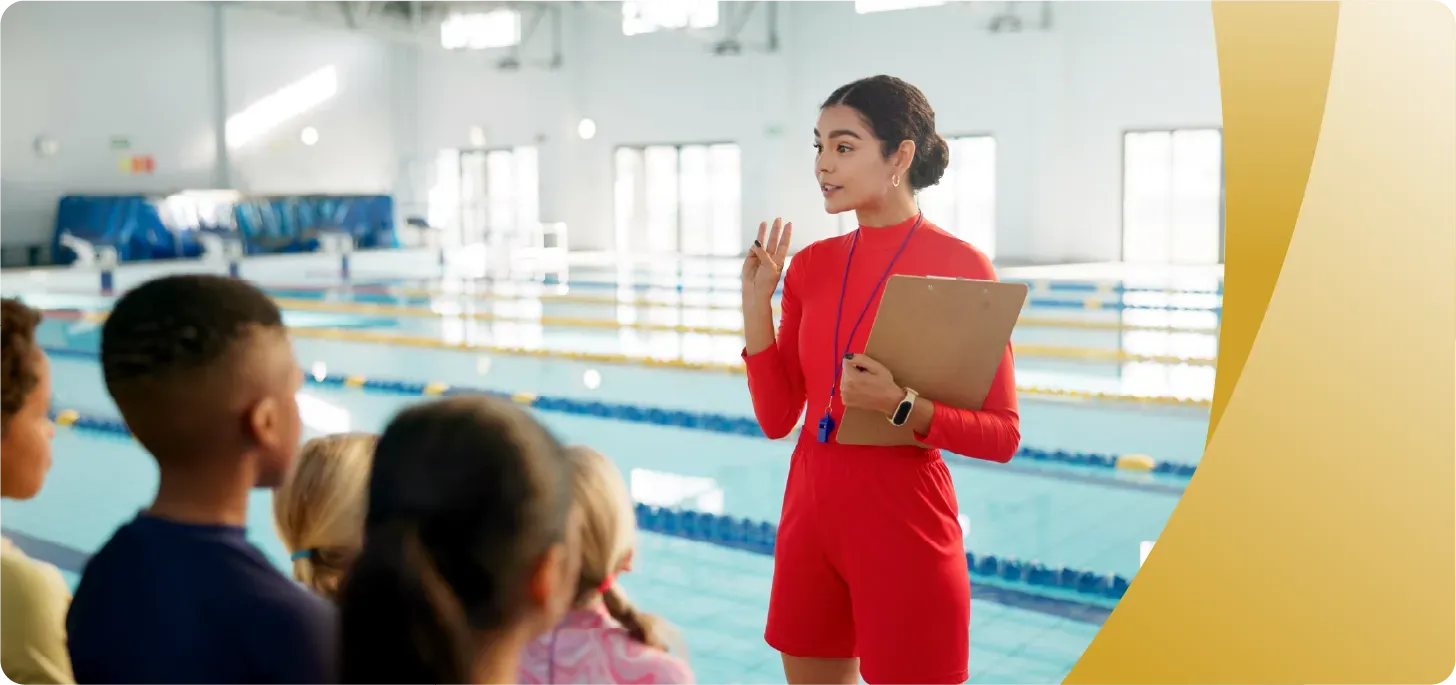
By offering swim lessons, your camp contributes to broader initiatives like The World’s Largest Swimming Lesson (WLSL) and the American Red Cross Aquatics Program, reinforcing your role in the global effort to prevent drownings.
Join the movement. Spread the message. Help campers grow strong in the water.
Not an Activity, a Responsibility – Committing to Camp Water Safety
At first glance, water safety and swimming courses at camp may seem like more work than fun. But more water time at camp is something most kids at camp are begging for!
At any skill level, kids can always benefit from one more lesson. Being confident and calm in emergency water scenarios increases safety for everyone involved.
Swim safety programs reinforce your camp’s commitment to campers’ overall well-being, safety, and personal growth.
You may be opening future doors as well! Not just camps, but hotels, public pools, and beaches are always looking for skilled swimmers to serve as lifeguards. It could be your camper’s first job.
Who knows?
You might even be hosting a future Olympic swimmer at camp!
Faith in Action – Relevant Tie-Ins for Faith-Based Camps
For camps with a mission to serve the whole child—mind, body, and spirit—swimming lessons offer a tangible way to live that mission.
Protecting young lives and building courage in the water can be a calling as much as a camp program. Spiritual texts offer references to water, often symbolizing danger or deliverance; common themes that can be easily incorporated into lessons and discussion.
Supporting Camp Water Safety Efforts as Camp Management Software
We’ve built features into iCampPro to help make managing water safety a seamless process for your team:
✅Use Custom Camp Forms to Collect Swim Data
Collect a self-reported history of each camper’s swim skills using camp forms! Our customizable forms can even include attachments to upload a camper’s earned certificates. 👉
Explore our Camp Forms »
🛠️ Tools to Organize Campers into Groups
With our Camper Groups feature, you can easily organize campers into groups for better supervision when planning activity rotations, like knowing which campers are going into the water next. 👉 Dive into Camper Groups »
🩹 Track Camper Health & Water-Related Incidents
Keep track of potential health and safety risks by the water with iCampPro’s health tools, which allow health incidents like injuries or illnesses to be associated with a certain area of camp. 👉 Learn About Health Tracking »
🧑💼Hire the Right Staff to Help Keep Campers Safe
With our roster-building tools and built-in hiring workflows, your team can plan staffing needs, create custom applications, and design interview templates to find qualified seasonal staff to take on water safety roles. 👉 Streamline Seasonal Hiring Efforts »
Are You Ready to Lead the Charge in Camp Water Safety?
Water safety isn’t just about fun in the sun—it’s about preparation, prevention, and protection. When you teach a camper to swim, you’re equipping them for a lifetime.
With intentional camp programming and the right support systems in place, your camp can confidently incorporate water safety into your mission!
iCampPro helps camps streamline the details—from grouping campers to helping you staff your activities and waterfront—so your team can stay focused on delivering a safe and unforgettable camper experience.
Take the next step to see how our platform fits your unique camp program!
About the Author
Her love for camp life started young, spending summers at overnight and 4-H day camps where she discovered a lifelong appreciation for creativity, exploration, and community. Today, Brittany brings that same energy to iCampPro, crafting thoughtful, engaging content that speaks to the heart of camp professionals and empowers them to do what they do best.




